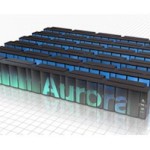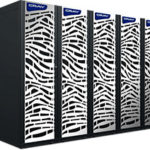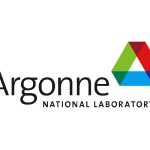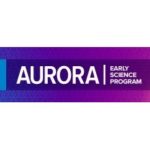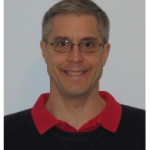The recently published Department of Energy FY 2018 Congressional Budget Request has raised a lot of questions about the Aurora supercomputer that was scheduled to be deployed at Argonne ALCF next year. “As we covered in our Radio Free HPC podcast, Aurora appears to be morphing into a very different kind of machine.”
In Search Of: Radio Free HPC on the Hunt for the Aurora Supercomputer
In this podcast, Rich notes that recent reports on the Aurora supercomputer were incorrect. According to Rick Borchelt from the DoE: “On the record, Aurora contract is not cancelled.” Before that, we follow Henry on an unprecedented shopping spree at Best Buy.
Argonne to Install 1.5 Petaflop Cray CS400 Cluster
Today Cray announced a contract to deliver a Cray CS400 cluster supercomputer to the Laboratory Computing Resource Center (LCRC) at Argonne National Laboratory. The new Cray system will serve as the Center’s flagship cluster, and in continuing with LCRC’s theme of jazz-music inspired computer names, the Cray CS400 system is named “Bebop.”
Argonne Seeking Proposals to Advance Big Data in Science
The Argonne Leadership Computing Facility Data Science Program (ADSP) is now accepting proposals for projects hoping to gain insight into very large datasets produced by experimental, simulation, or observational methods. The larger the data, in fact, the better. Applications are due by June 15, 2017.
Argonne Annouces Early Science Projects for Aurora Supercomputer
Argonne has selected 10 computational science and engineering research projects for its Aurora Early Science Program starting this month. Aurora, a massively parallel, manycore Intel-Cray supercomputer, will be ALCF’s next leadership-class computing resource and is expected to arrive in 2018. The Early Science Program helps lay the path for hundreds of other users by doing actual science, using real scientific applications, to ready a future machine. “As with any bleeding edge resource, there’s testing and debugging that has to be done,” said ALCF Director of Science Katherine Riley.
Call for Proposals: Aurora Early Science Program at Argonne
The Argonne Leadership Computing Facility (ALCF) is now accepting proposals for its Aurora Early Science Program (ESP) through September 2, 2016. The program will award computing time to 10 science teams to pursue innovative research as part of pre-production testing on the facility’s next-generation system. Aurora is a massively parallel, many-core Intel-Cray supercomputer that will deliver 18 times the computational performance of Mira, ALCF’s current production system.
Podcast: What a Supercomputer Does
In this WBEZ podcast, Katherine Riley from Argonne explains what a supercomputer does. “Argonne National Laboratory is celebrating its 70th anniversary. The science and engineering research center has had a prominent place in historical research developments. They’re currently in the process of installing their newewst supercomputer, Theta.”
Peta-Exa-Zetta: Robert Wisniewski and the Growth of Compute Power
While much noise is being made about the race to exascale, building productive supercomputers really comes down to people and ingenuity. In this special guest feature, Donna Loveland profiles supercomputer architect Robert Wisniewski from Intel. “In combining the threading and memory challenges, there’s an increased need for the hardware to perform synchronization operations, especially intranode ones, efficiently. With more threads utilizing less memory with wider parallelism, it becomes important that they synchronize among themselves efficiently and have access to efficient atomic memory operations. Applications also need to be vectorized to take advantage of the wider FPUs on the chip. While much of the vectorization can be done by compilers, application developers can follow design patterns that aid the compiler’s task.”
Paving the Way for Theta and Aurora
In this special guest feature, John Kirkley writes that Argonne is already building code for their future Theta and Aurora supercomputers based on Intel Knights Landing. “One of the ALCF’s primary tasks is to help prepare key applications for two advanced supercomputers. One is the 8.5-petaflops Theta system based on the upcoming Intel® Xeon Phi™ processor, code-named Knights Landing (KNL) and due for deployment this year. The other is a larger 180-petaflops Aurora supercomputer scheduled for 2018 using Intel Xeon Phi processors, code-named Knights Hill. A key goal is to solidify libraries and other essential elements, such as compilers and debuggers that support the systems’ current and future production applications.”
Video: Theta & Aurora – Big Systems for Big Science
“Aurora’s revolutionary architecture features Intel’s HPC scalable system framework and 2nd generation Intel Omni-Path Fabric. The system will have a combined total of over 8 Petabytes of on package high bandwidth memory and persistent memory, connected and communicating via a high-performance system fabric to achieve landmark throughput. The nodes will be linked to a dedicated burst buffer and a high-performance parallel storage solution. A second system, named Theta, will be delivered in 2016. Theta will be based on Intel’s second-generation Xeon Phi processor and will serve as an early production system for the ALCF.”

